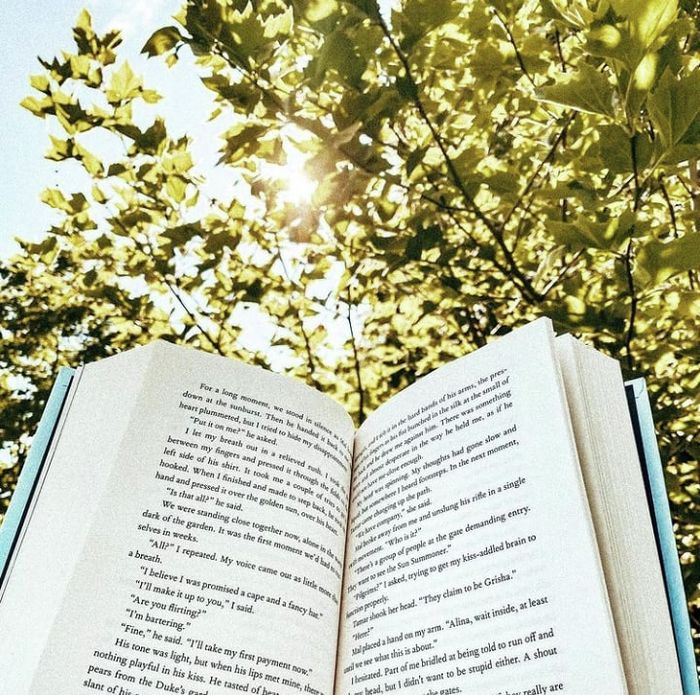Writers in the pandemic: the Booker Prize longlist
Arts columnist Magdalena Gabrysiak explores how COVID-19 has influenced contemporary fiction, in light of this year’s Booker Prize longlist

Following the announcement of the International Booker Prize winner for translated fiction last month (David Diop, At Night All Blood Is Black, trans. Anna Moschovakis from French), the Booker Foundation published the longlist for their main prize last week on the 27th of July. The books chosen this year say a lot about how the pandemic has influenced our ever-changing literary landscape, as well as the future of literature in a more and more internet-centred world.
“The books chosen this year say a lot about how the pandemic influenced our ever-changing literary landscape”
The Booker Prize is an annual award for prose fiction established in 1969, which is described by its founding organisation as ‘the leading literary award in the English-speaking world’. It is therefore not an exaggeration to say that the awarding of this prize has, for many years, defined and even shaped the literary landscape of our time. The long- and shortlists created by many different judges working for the foundation over the years have always reflected the changes that fiction has undergone during the political and social turbulences of the last five decades, and this year is no exception.
The biggest news about this longlist is that it includes Kazuo Ishiguro’s – former Booker Prize winner (1989 The Remains of the Day) and Nobel Prize laureate (2017) – latest book Klara and the Sun. This work, published in March this year, is set in a dystopian future, in which each individual’s academic abilities are genetically engineered and maximised by an online schooling system that deliberately limits opportunities for socialization. Needless to say, the parallels between our post-COVID world and Ishinguro’s dystopia are unmissable.
“[O]ur longing to connect with one another is as strong as it has always been”
Interestingly, however, only two (Ishiguro’s Klara and the Sun and Patricia Lockwood’s No One is Talking About This) out of the thirteen books which have been longlisted directly deal with our excessive online-ness and its further aggravation due to the pandemic. Still, after even a brief look at the nominees it becomes clear that the leading theme this year is one of solitude. Each of the works’ short plot summaries overflow with telling words such as ‘loneliness’, ‘alienation’, ‘remoteness’, and ‘withdrawal’, and the stories are filled with distanced characters who struggle to connect not just with one another (as in Richard Powers’ Bewilderment; Karen Jennings’ An Island; or Anuk Arudpragasam’s A Passage North) but with the reader as well (as in Rachel Cusk’s Second Place).
Another noteworthy trend that can be discerned is that of historical fiction — but one that seeks to re-examine and re-calibrate the prevailing historical narrative onto a postcolonial, non-heteronormative perspective. Nathan Harris’ The Sweetness of Water, for example, is set during the most popular and most frequently mythologised part of American history: the Civil War. However, it offers a fresh perspective on these past events, by weaving together two emotionally poignant and moving stories: the first, of a pair of Confederate soldiers whose love for each other has to be hidden from their small town, Georgian community, and the second, of two formerly enslaved brothers for whom emancipation turns out to be a mixed blessing. Harris’ portrayal is not alone in its attempt to form emotional connections with our past — Anuk Arudpragasam’s A Passage North and Sunjeev Sahota’s China Room also reference collective and personal pasts as a way of breathing compassion and beauty into their narratives.
And so it would seem that our current literature is unanimous in the assertion that in an (almost) post-pandemic world, we visibly struggle to form meaningful relationships both with each other and with the cultural heritage of our shared past. The intense grief and violence which screams from the pages of the longlisted books, however, can fill readers with hope as they suggest that our longing to connect with one another is as strong as it has always been. As we await the announcement of the shortlist – scheduled to appear on the 14th of September – and later on, the choosing of the one official winner on the 3rd of November this year, we can start to get out into the world again and begin reconnecting both with ourselves and with the books that long to make sense of our post-pandemic lives.
The full Booker Prize 2021 longlist is available here: https://thebookerprizes.com/fiction/2021
 News / SU reluctantly registers controversial women’s soc18 December 2025
News / SU reluctantly registers controversial women’s soc18 December 2025 News / CUP announces funding scheme for under-represented academics19 December 2025
News / CUP announces funding scheme for under-represented academics19 December 2025 Features / Should I stay or should I go? Cambridge students and alumni reflect on how their memories stay with them15 December 2025
Features / Should I stay or should I go? Cambridge students and alumni reflect on how their memories stay with them15 December 2025 Fashion / The art of the formal outfit 18 December 2025
Fashion / The art of the formal outfit 18 December 2025 News / Dons warn PM about Vet School closure16 December 2025
News / Dons warn PM about Vet School closure16 December 2025










